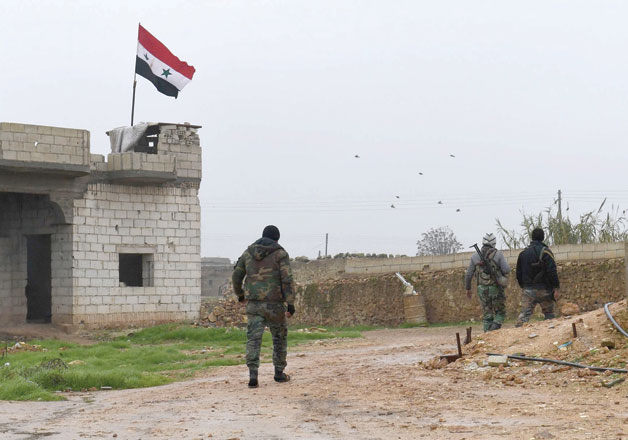DAMASCUS — The Syrian regime said Wednesday hundreds of Kurdish fighters had withdrawn from Manbij near the border with Turkey, days after the Kurds appealed to Damascus for support against a threatened Turkish offensive.
"A convoy of units of Kurdish fighters comprised of more than 30 vehicles left the region of Manbij, heading towards the eastern bank of the Euphrates River," the defence ministry said online.
"The information [we have] indicates that nearly 400 Kurdish fighters have left Manbij so far."
The People’s Protection Units (YPG), the main Kurdish militia in Syria, last week invited regime forces to deploy to the key city following a shock announcement that American troops would leave the country.
The YPG seized Manbij from the Daesh group in 2016 and US forces have continued to support the Kurdish fighters in their battle against the extremists.
President Donald Trump’s surprise announcement last month of a swift US withdrawal has left Kurdish fighters exposed to a planned military operation against them by Turkey.
The YPG is the backbone of the Syrian Democratic Forces, an Arab-Kurdish alliance which in recent months has been battling Daesh militants near the Iraqi border.
The Syrian defence ministry released a video showing a long convoy of 4x4 vehicles and white pick-ups carrying fighters in combat fatigues and displaying the YPG flag.
The Syrian Observatory for Human Rights, a Britain-based war monitor, said the fighters who withdrew from Manbij on Wednesday were not YPG fighters but belonged to other militias within the SDF.
